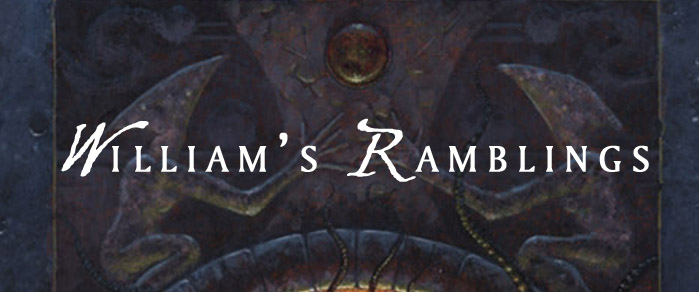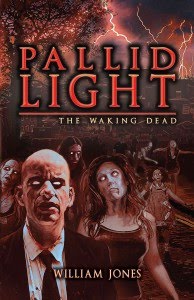Metaphor: What is it good for?
Recently, I've read several educational surveys that indicate that art and tools of literature are passing way. Primarily, metaphor, simile, and personification. For those who enjoy writing and reading, this is certainly sad news. For those who enjoy language as logic, it is also sad news. Orators, prose writers, poets, lyricists, all can be affected by the seemingly decreasing understanding of the purpose, function, and meaning of these tropes.
A few lines of Shakespeare will reveal the power of these figures of speech. He was a master of their use - particularly personification. However, it seems modern readers are having more difficulty catching-on to lines such as "...Up from my cabin / My sea-gown scarf'd about me, in the dark..." (Hamlet). Okay, I admit, that one is a bit of a challenge. Given we don't think of the fog on the sea that often, to be "scarf'd" in fog and darkness requires some work to figure out. But what a wondeful imae.
Mmost writers today don't work at the level of Shakespeare, and the metaphors are a touch more modern in meaning. "The clouds padded across the night sky" (A. A. Attanasio) is wonderful example of modern usage. Of course, clouds don't "pad" about. It is the image that works; the underlying meaning, the poetry of the line add to its "feeling." It transforms the clouds into something more than vapor - more than the literal.
Naturally, the weaker forms of metaphor are falling by the wayside as well. What this adds up to is a loss in the depth and pleasure of reading. While film can compensate for written metaphor by imagery, it is very different - and something that also appears lost to more and more film viewers.
At the root of all of this is the sub-textual meaning of a fiction work. Yes, fiction sometimes has such a thing, and quite often the aforementioned literary tropes build the foundation of that meaning or theme.
Recently in my novel Pallid Light: The Waking Dead, I opted to move away from the common theme of "zombies as consumers." It's a good one, but I was interested in personal and group identity. And it so happens that "zombies" are a natural fit for dealing with identity. Throughout the novel I used character reversals (for the living characters) and semi-intelligent and mindless zombies as well. I suppose, to be cliche, I was saying, "you can't judge a book by it's cover" (hopefully that still has meaning today). Convicts, tough guys, nerds, the poor and the wealthy all get a chance to appear as their stereotypes, and then attempt to reverse those stereotypes as the reader engages with the characters. Even the zombies join in the fun.
Personally, I think the novel can be read without any attention given to the sub-text, but part of the fun of reading and writing for me is exploring the sub-text, the themes. And while we do live in a consumer nation, the traditional zombie fiction theme, we also live in a world of lost identities. In fact, it seems people might even consume to find personal identity - you are what you eat and what you buy, after all.
For me the locus of the issue rests with the individual. What defines us? Work, clothing, actions, public opinion, vocabulary, education, social status? It's an endless list, and one, to me, worth investigating.
In a culture driven to achieve, to succeed, to "win," I can think of no greater disaster than the fall of the structure of society. All that remains are people without their belongings, without the former social order, without the things they strove so long to acquire to "identify" themselves. And while people can be taken at face value, in order to trust them, we as individuals must look deeper. To maker matters worse, if we all experience an identity crisis, how can we know ourselves, much less anyone else.
In the end, words, simile, metaphor, and various other approaches attempt to tell two stories in Pallid Light. One story is obvious: the end of the world. But at every turn, fast on the heels of the apocalypse are character questioning who they are and what they are.
I mention all of this not because I want people to read the sub-text of Pallid Light. Rather, I can speak on the novel with some authority as I wrote the book. My real goal is to convince some readers to give more thought to any author's selection or words, phrases, comparisons. It is a part of what makes written fiction so wonderful. Sometimes a word is just a word. But other times, we catch ourselves asking, "What did you mean by that?" To return to Hamlet, his utterance of "Get thee to a nunnery" has been the topic of countless debates over the centuries. Most of us today know what a nunnery is - but in Shakespeare's day, it also could mean a "whore house." He said this to Ophelia, shortly after uttering, "I did love you ... but I don't love you." The meaning of his words depends upon whether Ophelia thought Hamlet was speaking in metaphor or literary... or maybe both. Either way, there's something rotten in the State of Denmark.




